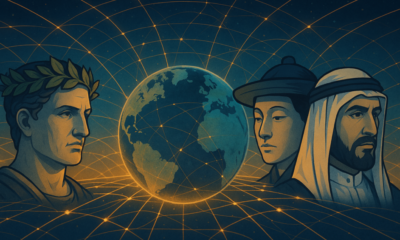Regulation
Brazil Establishes National AI Strategy

The Brazilian government has published its artificial intelligence (AI) strategy following a public consultation that took place from December 2019 to March 2020. That process involved AI consulting firms and an international benchmarking process, and according to the government, it received over 1,000 contributions.
The new AI strategy focuses on research, innovation, and the development of AI technology to help solve some of the major challenges faced by Latin America’s largest nation.
One of the main aspects of the AI strategy is the encouragement of entrepreneurship in the sector.
“In 2019, while the US invested US$224 million in AI startups, and China US$45 million, Brazil invested only $1 million,” the report said.
Brazil’s national AI strategy establishes six objectives:
- Develop ethical principles that guide responsible use of AI
- Remove barriers to innovation
- Improve collaboration between government, the private sector and researchers
- Develop AI skills
- Promote investment in technologies
- Advance Brazilian tech overseas
Based on these objectives, the plan sets out to take specific strategic actions to advance AI technology in Brazil, including research into ethical AI, the update of the national education curriculum to include skills like computing and programming, the establishment of governance ecosystems in the public and private sector for AI use, and the creation of diverse teams for developing AI technology.
Human-Centered Principles
Brazil has adopted OECD’s human-centered, five principles for responsible AI:
- Inclusive growth, sustainable development and wellbeing
- Human-centered values and equity
- Transparency and responsible disclosure
- Robustness, security and safety
- Accountability
Based on these principles, Brazil’s strategy focuses on six vertical themes and three common themes. The six vertical themes include qualifications for a digital future; workforce creation; research, development, innovation and entrepreneurship; government application of AI; application in the productive sectors; and public safety. The three common themes include legislation, regulation, and ethical use; international aspects; and AI governance.
Brazil’s Minister of Science, Technology and Innovation, Marcos Pontes, says that the new strategy is “the fulfillment of a dream” for the nation. The government views AI as “essential,” and it is crucial for the development of other technologies.
National AI Innovation Network
On top of the new national AI strategy, Brazil had already been working on creating a national AI innovation network. The network of research centers is meant to support startups and encourage the development of products and services based on AI.
The network is the largest in the country, and it came about following collaboration between the Ministry of Science, Technology and Innovations (MCTI), and the Brazilian Industrial Research and Innovation Company (EMBRAPII).
The investment totaled 70 million reais (US$12 million), which came from government incentives. With the network beginning in 2020, the funding was set to spread out over a period of five years, with 20 million reais (US$3.5 million) going specifically towards AI in the automotive and agribusiness sectors.
The initiative includes a network of 17 research centers involved in areas like machine learning, Internet of Things, and Big Data. Another main aspect of the research centers is the international exchange of knowledge and collaboration with other leading networks around the world, including Europe, Israel and North America.
All of these developments come after a study carried out by the Ducker Frontier consulting firm, on behalf of Microsoft, found that Brazil could achieve a 7.1% increase in GDP by fully adopting artificial intelligence technologies.












